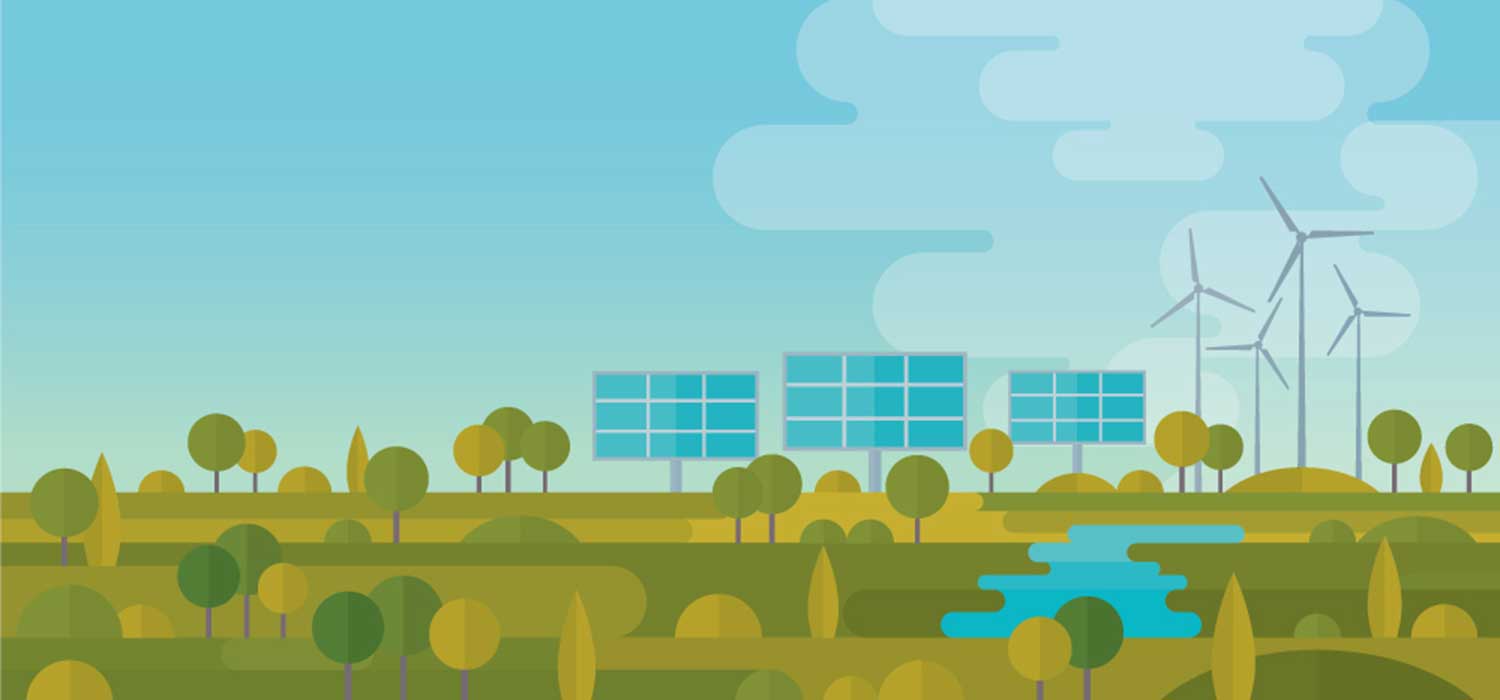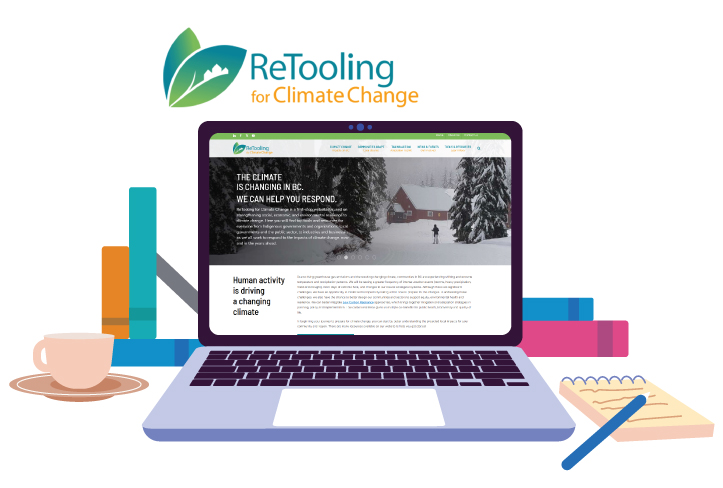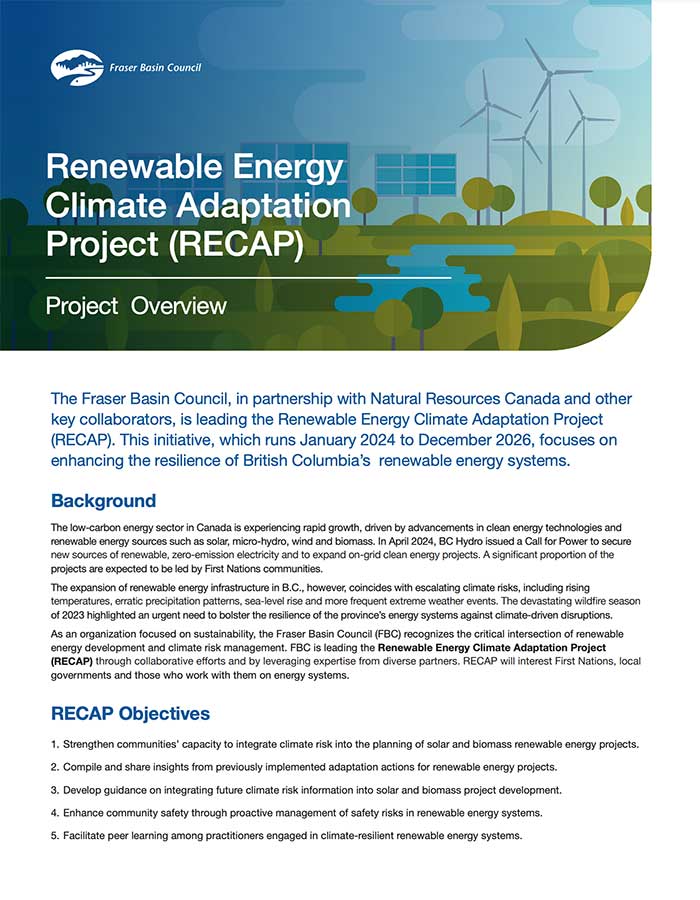Climate Resilience
Under climate change, BC is likely to experience more frequent intense weather events (storms, heavy precipitation, flood and drought), more days of extreme heat, and changes in natural ecological systems. FBC works to support communities as they seek to manage climate change impacts and adapt plans to improve resilience.
CONEXT: Climate Preparedness Hub
CONTEXT is a new climate preparedness program designed to empower community leaders and staff in small, rural and remote communities in BC as they work to adapt to climate change and build resilience.
Thanks to everyone who stepped forward to take part in CONEXT — we are happy to be working with you! The program got underway in Fall 2024 and runs to Spring 2025 through both online sessions and assignments.
The goal of CONEXT is to empower community leaders to navigate the next steps in their climate journey with confidence.

How Communities Benefit
BC communities that join CONEXT will collaborate with the partnership team to develop tailored climate preparedness action plans and initiatives based on their unique needs and challenges.
What are the benefits?
Learn More
For more backgrournd, see the CONEXT Project Brochure.
Contact Us
If you have any questions, please contact:
Rebeka MacDonald
Fraser Basin Council
CONEXT Project Team Organizations
This project is a collaborative effort led by a diverse team of organizations committed to enhancing climate resilience across British Columbia.

Renewable Energy Climate Adaptation (RECAP)
The Fraser Basin Council, in partnership with Natural Resources Canada and other key collaborators, is leading the Renewable Energy Climate Adaptation Project (RECAP) to enhance the resilience of British Columbia’s renewable energy systems.
The initiative runs January 2024 to December 2026.

The low-carbon energy sector in Canada is experiencing rapid growth, driven by advancements in clean energy technologies and renewable energy sources such as solar, micro-hydro, wind and biomass. In April 2024, BC Hydro issued a Call for Power to secure new sources of renewable, zero-emission electricity and to expand on-grid clean energy projects. A significant proportion of the projects are expected to be led by First Nations communities.
The expansion of renewable energy infrastructure in BC, however, coincides with escalating climate risks. Risks include rising temperatures, erratic precipitation patterns, sea-level rise and more frequent extreme weather events. The devastating wildfire season of 2023 highlighted an urgent need to bolster the resilience of the province’s energy systems against climate-driven disruptions.
RECAP will interest First Nations, local governments and those who work with them in BC to integrate climate risk into the planning of solar and biomass renewable energy projects. The project will develop a research report, cases studies, peer learning opportunities and guidance documents.
RECAP is supported by Natural Resources Canada’s Climate Change Adaptation Program, with additional in-kind support from other project partners, including the Ministry of Energy, Mines and Low Carbon Innovation (EMLI), Emergency Management and Climate Readiness (EMCR), Climate Action Secretariat, New Relationship Trust (NRT), Technical Safety BC and Pacific Climate Impacts Consortium (PCIC).
Climate Risk Network
The BC Climate Risk Network, with facilitation support from the Fraser Basin Council, brings together people who have responsibilities that focus on climate change adaptation. The network strengthens relationships among people in government, public agencies, the academic community, non-profits and other organizations. Since 2015, network members have met regularly to:
ReTooling for Climate Change!

ReTooling for Climate Change is an online resource site to help BC communities build resilience to the impacts of a changing climate.
Visit the site for adaptation news, events, case studies, reports, guides, tools, policies and plans and videos.
Plus subscribe to the ReTooling newsletter and follow our socials!





